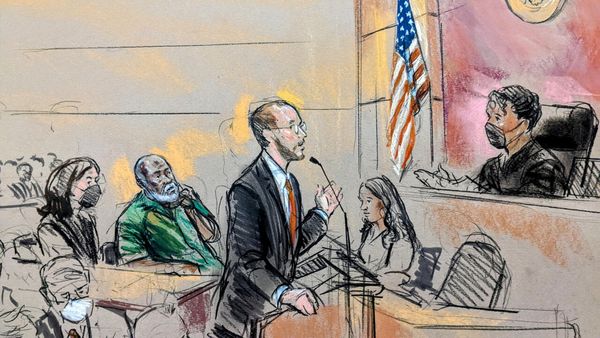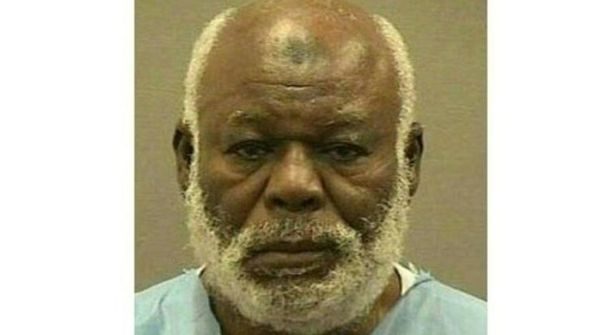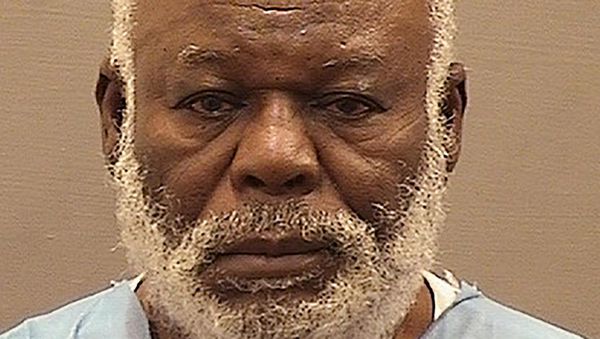
More than three decades after a bomb brought down Pan Am Flight 103 over Lockerbie, Scotland, killing everyone aboard, a former Libyan intelligence official accused of making the explosive appeared Monday in federal court, charged with an act of international terrorism.
The extradition of Abu Agila Mohammad Masud Kheir Al-Marimi marked a milestone in the decades-old investigation into the attack that killed 259 people aboard the plane and 11 on the ground. His arrival in Washington sets the stage for one of the Justice Department's more significant terrorism prosecutions in recent memory.
The Justice Department announced Sunday that Masud had been taken into US custody, two years after it revealed that it had charged him in connection with the explosion. Two other Libyan intelligence officials have been charged in the US for their alleged involvement in the attack, but Masud was the first defendant to appear in an American courtroom for prosecution.
The New York-bound Pan Am flight exploded over Lockerbie less than an hour after takeoff from London on Dec. 21, 1988. Citizens from 21 countries were killed. Among the 190 Americans on board were 35 Syracuse University students flying home for Christmas after a semester abroad.
US National Security Advisor Jake Sullivan told a press briefing on Monday that Masud was brought to the US “in a lawful manner, according to established procedures.”
American authorities did not, however, disclose how he was arrested. Libya and the US do not share an extradition agreement.
Libyan media had reported that Masud was abducted by gunmen from his place of residence in the Libyan capital, Tripoli, in November. He was then flown to the US on board a private jet.
“Although nearly 34 years have passed since the defendant's actions, countless families have never fully recovered," Assistant US Attorney Erik Kenerson said during a court proceeding attended by victims' relatives.
The bearded and balding Masud wore a green jail uniform, and walked with a halting gait to the defense table. He spoke occasionally through an interpreter, and the federal defenders who represented him at the hearing said he wanted to be represented by lawyers of his own choice.
At one point, as the charges were being discussed, Masud said in Arabic that he could not speak until he saw his attorney.
A detention hearing was set for later in the month.
The announcement of charges against Masud on Dec. 21, 2020, came on the 32nd anniversary of the bombing and in the final days of the tenure of then-Attorney General William Barr. At the time, Masud was in Libyan custody. The announcement was a career bookend for Barr, who in his first stint as attorney general in the early 1990s had announced criminal charges against two other Libyan intelligence officials.
The Libyan government initially balked at turning over those two men, Abdel Baset Ali al-Megrahi and Lamen Khalifa Fhimah, before ultimately surrendering them for prosecution before a panel of Scottish judges sitting in the Netherlands as part of a special arrangement.
In Masud's case, a newly unsealed Justice Department indictment includes three charges related to the explosion, including destruction of an aircraft, resulting in death. Prosecutors said in court that they would not be pursuing the death penalty because that punishment was not available for those specific crimes at the time the bombing occurred.
A breakthrough in the Justice Department's investigation came when US officials in 2017 received a copy of an interview that Masud, a longtime explosives expert for Libya’s intelligence service, had given to Libyan law enforcement in 2012 after being taken into custody following the collapse of the government of the country’s leader, Col. Moammar Gaddafi.
In that interview, US officials said, Masud admitted building the bomb in the Pan Am attack and working with two other conspirators to carry out the attack. He also said the operation was ordered by Libyan intelligence and that Gaddafi thanked him and other members of the team after the attack, according to an FBI affidavit.
That affidavit said Masud told Libyan law enforcement that he flew to Malta to meet al-Megrahi and Fhimah. He handed Fhimah a medium-sized Samsonite suitcase containing a bomb, having already been instructed to set the timer so that the device would explode exactly 11 hours later, according to the document. He then flew to Tripoli, the FBI said.
Al-Megrahi was convicted in the Netherlands while Fhimah was acquitted of all charges. Al-Megrahi was given a life sentence, but Scottish authorities released him on humanitarian grounds in 2009 after he was diagnosed with prostate cancer. He died in Tripoli, still protesting his innocence.










